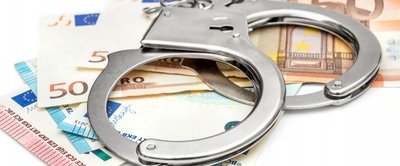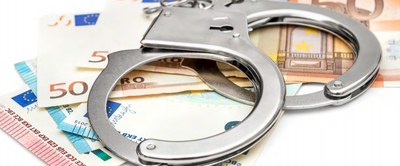Crusade against corruption

White collar crime is booming in Spain. with law firm’s practices in some cases increasing more than three-fold in the last decade – it’s good news for criminal lawyers, but the high-profile nature of such cases brings considerable added pressures
 More and more executives in Spain are getting into trouble. This is evidenced by the dramatic increase in white collar crime cases in recent years. And such cases can pose significant challenges for law firms given that they are often highly complex, can involve public companies and can also involve high profile individuals. Law firms white collar crime practices in Spain have seen a substantial increase in workflow in recent years. Baker & McKenzie, for example has seen a 300 per cent increase in such matters since 2012.
More and more executives in Spain are getting into trouble. This is evidenced by the dramatic increase in white collar crime cases in recent years. And such cases can pose significant challenges for law firms given that they are often highly complex, can involve public companies and can also involve high profile individuals. Law firms white collar crime practices in Spain have seen a substantial increase in workflow in recent years. Baker & McKenzie, for example has seen a 300 per cent increase in such matters since 2012.
Meanwhile, Pérez-Llorca’s economic crime practice has also reported substantial growth since its inception in 2008. One of the key factors in this upward trend is the greater emphasis lawmakers are placing on economic crimes. Jesús Santos, partner at Baker McKenzie, says that, since the reform of the Criminal Code in 1995, legislation has expanded its reach considerably in this area. The reforms, which establish the criminal liability of legal persons in Spain, are evidence of Spain’s attempt to align its criminal law with that of several major European countries, and as a result, Santos notes, this has ended “one of the most established principles in our order: societas delinquere non potest”, that is, society cannot commit a crime. Óscar Morales, partner at Uría Ménendez, says that criminal law, in general, is constantly expanding, particularly in an economic context. “The introduction of the criminal liability of legal persons regime, the successive reforms of legislation concerning stock market-related crimes, as well as misappropriation, unfair administration, corruption among individuals and investor fraud are just some examples of this rapid expansion,” he says.
MORE CRIMES DETECTED?
Another factor in the rise in white collar crime cases is a greater inclination, in general, to devote more resources to detecting such crimes. Adriana de Buerba, partner at PérezLlorca, says: “Companies are increasingly aware of the importance of business ethics and devote significant resources to the implementation of internal detection and control mechanisms (such as compliance systems and internal reporting or whistleblowing channels).” This is something that has undoubtedly contributed to the greater visibility of certain types of economic-related misbehaviour. Therefore, says De Buerba, “it is difficult to know if the statistical increase in judicial investigations and convictions for this type of crime is due to a real increase in irregular behaviour or to the existence of greater means of detection.” This increase in cases is generating significant opportunities for law firms. Nowadays, in most large firms, economic crime matters represent a significant proportion of firms’ work. In addition, according to De Buerba, “the practice of criminal economic law has broadened its scope of expertise, business criminal lawyers not only work in court proceedings but also increasingly provide preventive advice as well as advising on internal corporate investigations”. In response to this increasing demand, law firms have sought to strengthen their criminal litigation departments. Santos says the increase in these cases has given firms the opportunity to advise new clients, approaching cases from a new perspective that had previously gone unexplored. “However, on many occasions we move blindly because of the lack of jurisprudence in this matter – the truth is that this gives us, both lawyers and judges and prosecutors, greater creative freedom,” he says. “It could be said that we have the opportunity to contribute to the establishment of jurisprudential bases for the future.” Despite these opportunities for law firms, Carlos Aguilar, partner at CMS Albiñana & Suárez de Lezo, points out that the risks faced by “economic operators” as a result of this aggressive criminal law, means “the reputation of the client can be put at risk too easily, which results in diminishing guarantees with regard to defense”.
To read the article in full please download issue N.85 here












